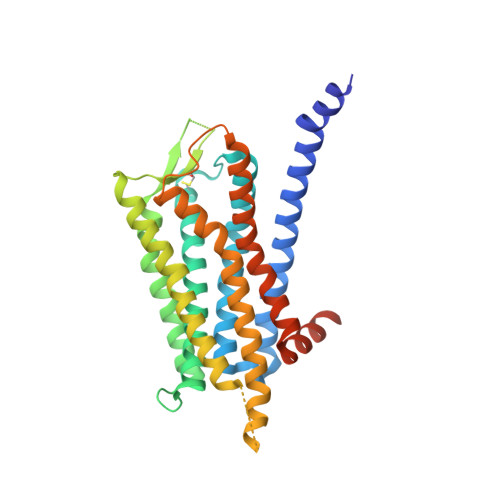Comparison of Orexin 1 and Orexin 2 Ligand Binding Modes Using X-ray Crystallography and Computational Analysis.
Rappas, M., Ali, A.A.E., Bennett, K.A., Brown, J.D., Bucknell, S.J., Congreve, M., Cooke, R.M., Cseke, G., de Graaf, C., Dore, A.S., Errey, J.C., Jazayeri, A., Marshall, F.H., Mason, J.S., Mould, R., Patel, J.C., Tehan, B.G., Weir, M., Christopher, J.A.(2020) J Med Chem 63: 1528-1543
- PubMed: 31860301
- DOI: https://doi.org/10.1021/acs.jmedchem.9b01787
- Primary Citation of Related Structures:
6TO7, 6TOD, 6TOS, 6TOT, 6TP3, 6TP4, 6TP6, 6TPG, 6TPJ, 6TPN, 6TQ4, 6TQ6, 6TQ7, 6TQ9 - PubMed Abstract:
The orexin system, which consists of the two G protein-coupled receptors OX 1 and OX 2 , activated by the neuropeptides OX-A and OX-B, is firmly established as a key regulator of behavioral arousal, sleep, and wakefulness and has been an area of intense research effort over the past two decades. X-ray structures of the receptors in complex with 10 new antagonist ligands from diverse chemotypes are presented, which complement the existing structural information for the system and highlight the critical importance of lipophilic hotspots and water molecules for these peptidergic GPCR targets. Learnings from the structural information regarding the utility of pharmacophore models and how selectivity between OX 1 and OX 2 can be achieved are discussed.
- Sosei Heptares , Steinmetz Building, Granta Park , Cambridge CB21 6DG , U.K.
Organizational Affiliation:




















